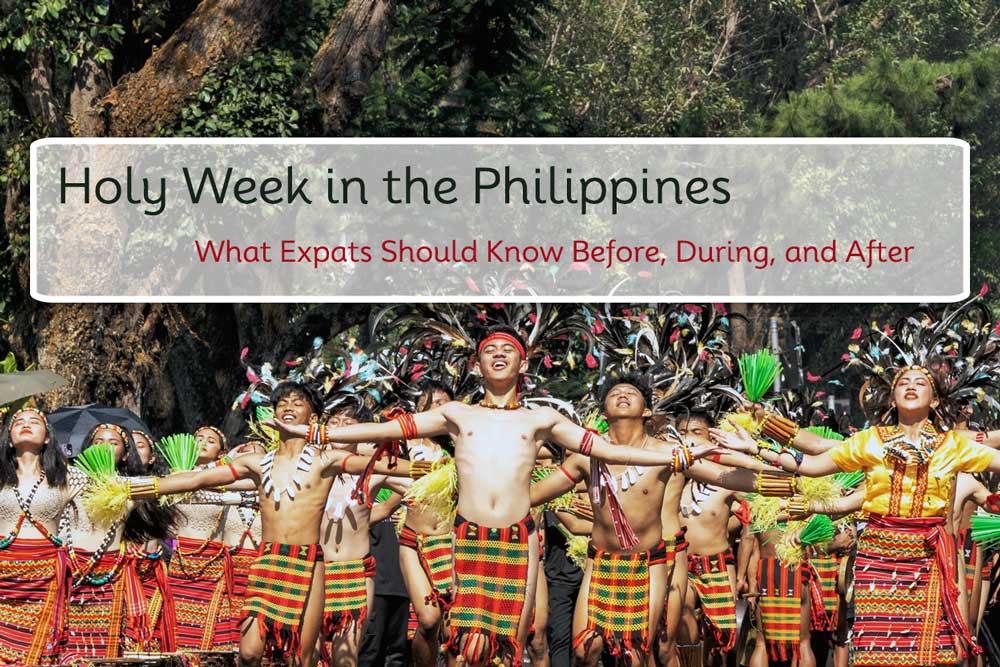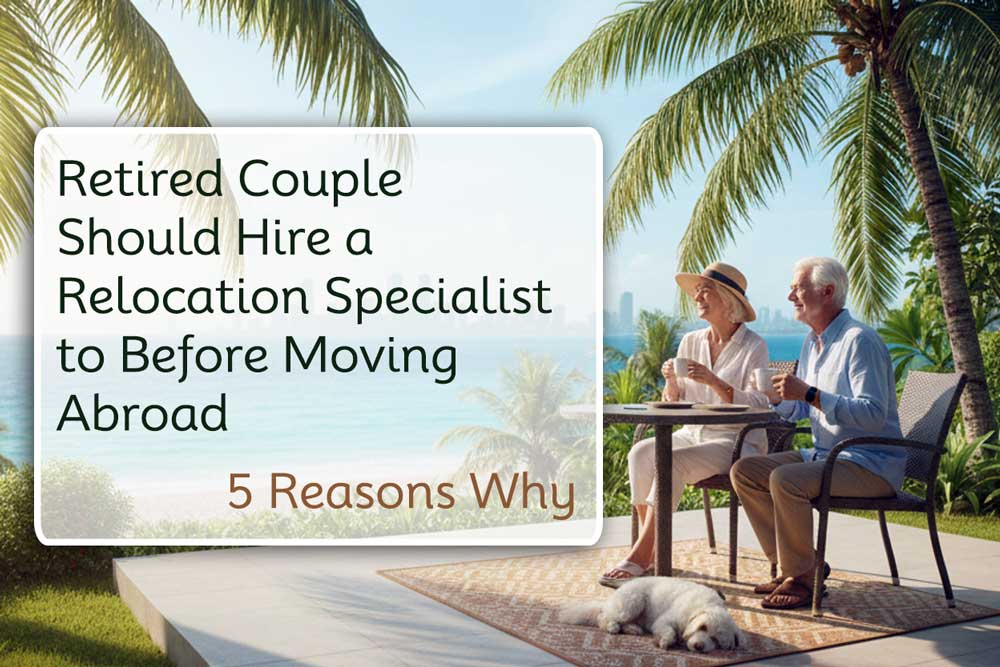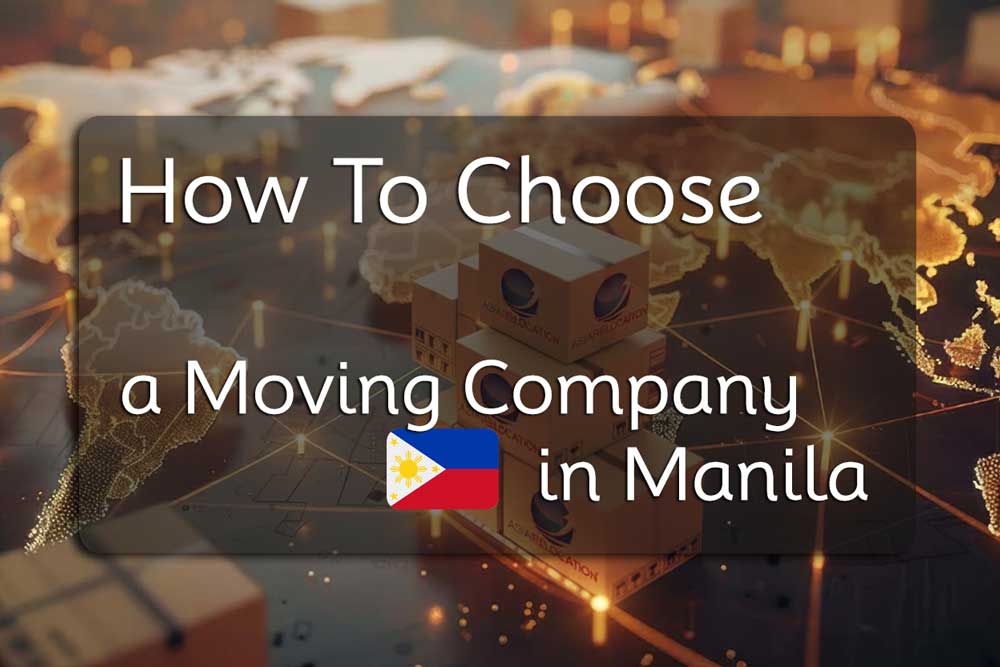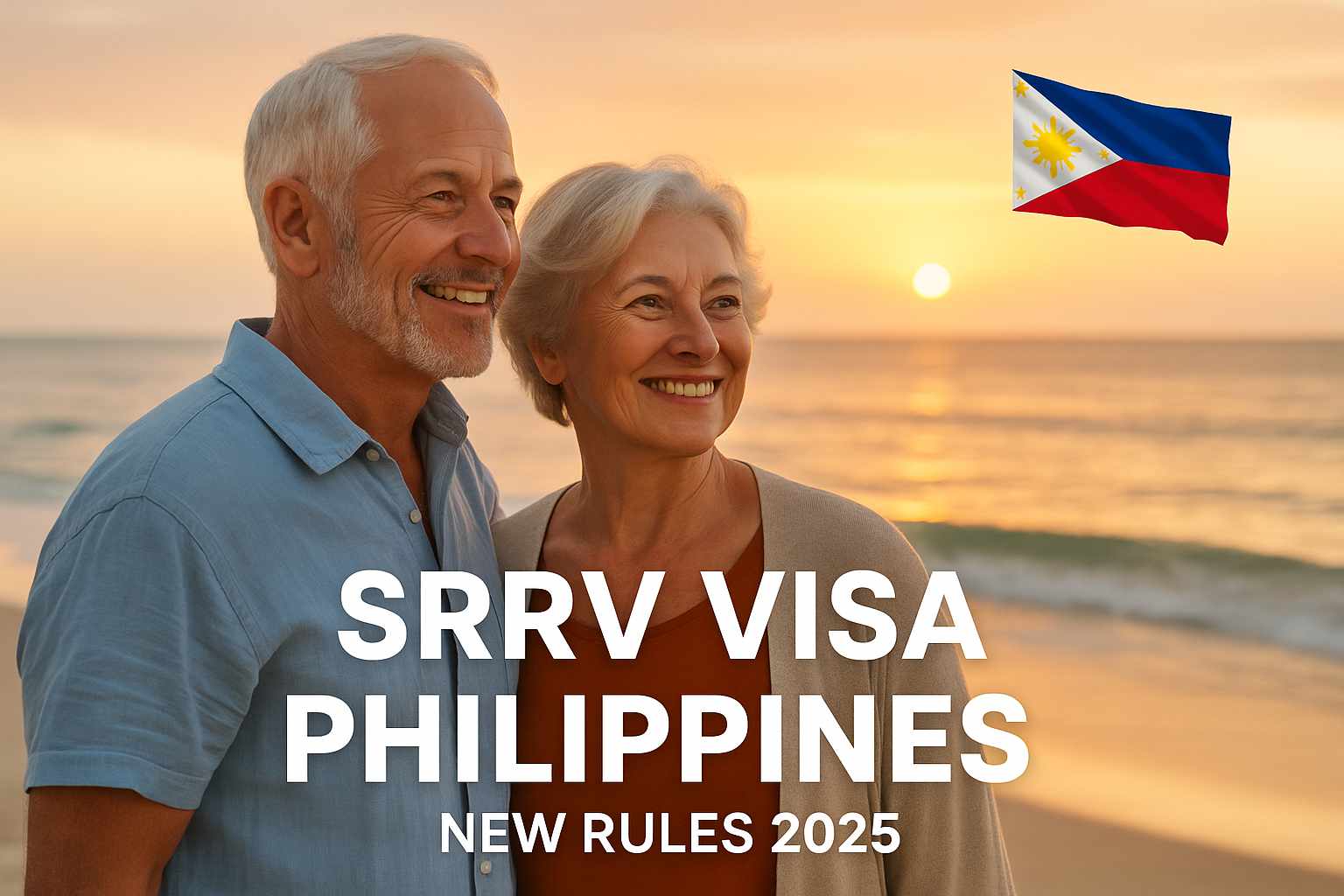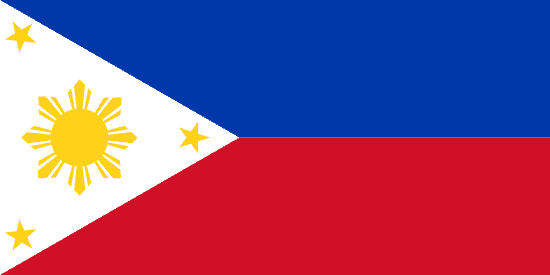
PHILIPPINES
Country Guide
ASIA RELOCATION PHILIPPINES
Philippines – Country Informations
- Dnh
- Infos reviewed 25/08/25
Have you decided to Move to Philippines?
Choosing the Philippines makes strong sense for expats and professionals—especially those coming from Vietnam, Thailand, and the Philippines itself—for several practical and lifestyle reasons:
1️⃣ English-speaking advantage
English is an official language
Easy communication at work, school, healthcare, and government offices
No language barrier for daily life or business
2️⃣ Welcoming culture for foreigners
Filipinos are known for hospitality, openness, and adaptability
Strong exposure to international cultures and Western work standards
Foreigners integrate quickly, even on first relocation
3️⃣ Flexible visa & residency options
Multiple long-stay solutions for:
Professionals and investors
Families and retirees
Former Filipino citizens and spouses
Clear pathways with proper local support (critical for compliance)
4️⃣ Competitive cost of living
Housing, domestic help, schooling, and services are significantly cheaper than Europe, Singapore, or Hong Kong
Excellent value for money for families and lifestyle movers
5️⃣ Strong business & outsourcing hub
Regional HQs in:
Manila / BGC / Makati (finance, tech, BPO)
Cebu (IT, shared services, startups)
Ideal for career movers, entrepreneurs, and remote workers
6️⃣ Family-friendly destination
Large choice of international schools (British, American, IB)
Affordable private healthcare with English-speaking doctors
Social environment well suited to children and mixed-nationality families
7️⃣ Natural lifestyle appeal
Tropical climate
Beaches, islands, diving, and weekend escapes
Urban comfort combined with resort-style living
Whether you’re planning a tourist trip or a business relocation, here’s what you should know before you go.
General Overview
- Official country name: Republic of the Philippines
- Location: Southeast Asia, Western Pacific Ocean
- Capital city: Manila
- Official language(s): Filipino, English
- Currency: Philippine Peso (PHP)
- Time zone: UTC+8
Culture & Traditions
- Key customs to be aware of:
- Strong family values and respect for elders (use of “po” and “opo” in speech).
- “Bayanihan” (community spirit) and hospitality are important cultural traits.
- Smiling is common and seen as a sign of friendliness.
- Number of official public holidays: 18 days
- New Year’s Day (1 January)
- Maundy Thursday & Good Friday (movable)
- Araw ng Kagitingan / Day of Valor (9 April)
- Labor Day (1 May)
- Independence Day (12 June)
- Ninoy Aquino Day (21 August)
- National Heroes Day (last Monday of August)
- All Saints’ Day (1 November)
- Bonifacio Day (30 November)
- Christmas Day (25 December)
- Rizal Day (30 December)
👉 See the full Philippines holidays & days off guide.
- Main traditional dishes and local drinks:
- Dishes:
Adobo, Sinigang, Lechon, Pancit, Kare-Kare, Halo-Halo (dessert). - Drinks:
Buko juice (coconut water), Tuba (fermented coconut wine), San Miguel Beer.
- Dishes:
- Languages spoken daily:
Filipino/Tagalog and English (widespread); Cebuano, Ilocano, and other regional languages. - 3 common phrases to learn:
- Kumusta? (How are you?)
- Salamat (Thank you)
- Magkano po? (How much?)
- Specific clothing and behavioral norms:
- Light clothing due to the tropical climate.
- Business and formal events require barong tagalog (for men) and Filipiniana dresses (for women).
- Avoid direct confrontation; Filipinos value harmony and non-confrontational behavior.
👉 Learn about culture and Festivals in the Philippines
Demographics & Society
- Total population: Approximately 114 million
- Major ethnic groups:
Tagalog, Cebuano, Ilocano, Bisaya, Bicolano, Waray, and other indigenous groups. - Main religion:
Christianity (mainly Roman Catholic – about 80%), Islam (around 6%) - General safety level:
- Generally safe but be cautious of petty crime in urban areas.
- Some regions in Mindanao have security concerns due to insurgencies.
- Attitude towards foreigners and diversity:
- Filipinos are known for their hospitality and warmth towards foreigners.
- Many locals speak English, making communication easy for expats.
Key Cities & Regions
- Capital city:
- Manila (1.9 million people) – Economic and cultural hub, known for its colonial history and bustling city life.
👉 Learn about Manila
- Major cities:
- Quezon City (2.9 million) – Largest city, home to government offices and universities.
- Davao City (1.8 million) – Clean and safe, famous for Mount Apo and durian fruit.
- Cebu City (1 million) – Economic hub in the Visayas, known for beaches and historical sites.
👉 Learn about Cebu city
- Zamboanga City (977,000) – Known for Spanish influence and the Chavacano language.
- Baguio City (366,000) – Mountain city with a cooler climate, a popular retreat.
- Must-visit regions or landmarks:
- Palawan – Limestone cliffs, world-class diving
- Bohol – Chocolate Hills, tarsiers, beaches
- Siargao – Surf capital, laid-back island life
- Ilocos – Heritage towns, beaches, wind farms
- Cordillera – Rice terraces, trekking
Philippines Weather & Climate
- Type of climate:
Tropical; hot, humid; distinct wet (Jun–Nov) and dry (Dec–May) seasons - Average seasonal temperatures:
- Dry season (November – May): 24-34°C
- Rainy season (June – October): 22-32°C, risk of typhoons.
- Best times to visit:
November to April for dry and cooler weather, plan around typhoon months
Schooling
System of schooling:
K-12 system;
Public, private, and international schoolsAge and degree:
Kindergarten to Grade 12;
University followsInternational school and language:
English-medium schools in Metro Manila, Cebu, Clark/SubicCost/Pricing:
Public schools low cost; international schools vary widely- Advices:
Start school search early for waitlists; check accreditation and IB/AP options
👉 See School Search Service.
Health & Care
System type:
Mixed public/private; top private hospitals in major citiesDifferent structures to get support:
Public hospitals, private hospitals/clinics, 24/7 urgent care- Cost:
Public care affordable; private care higher but faster; international health insurance recommended
Banking
System type: Modernizing; BSP-regulated
How to pay:
Cash and cards; mobile wallets (GCash, Maya) widely usedHow to transfer:
SWIFT transfers; remittance centers; app-based bankingBanking access for foreigners:
Possible with valid visa, local address, and ID (requirements vary by bank)
Practical Infomations
- Entry requirements:
- Visa-free entry for up to 30 days for many nationalities.
- Long-term stays require a visa or residence permit.
- EU citizens:
Many eligible for visa-free entry for short stays; check conditions for extensions/long-stay permits - Non-EU citizens:
Visa-free or visa-on-arrival for many passports; long-term stays require appropriate visas/work permits - VN citizens: Typically visa-free for short stays (check current policy and onward ticket rules)
- TH citizens: Typically visa-free for short stays (check current policy and onward ticket rules)
👉 See Visa & Immigration Services
- Local transportation options:
- Jeepneys (affordable, iconic public transport but can be crowded).
- Taxis and ride-hailing apps (Grab is popular).
- Buses and trains in Metro Manila.
- Tricycles and motorbikes for short distances in small towns.
- Cost of living:
- Housing:
Rent for a one-bedroom apartment in Manila:
PHP 20,000–35,000 ($350–600).
Highest in Makati/BGC/Ortigas and central Cebu; more affordable in Davao and provincial cities
- Housing:
👉 See Home Search services
- Food:
Eating out is affordable, with local meals costing PHP 100–300 ($2–5). - Transport:
Jeepney rides cost around PHP 12 ($0.20), taxi fares start at PHP 45 ($0.80).
- Food:
- Electrical outlets and voltage used:
Type A, B, C outlets, 220V. - Emergency numbers to know:
- Police: 117
- Fire: 160
- Ambulance: 911
Visitor Tips
- Gestures to avoid or cultural taboos:
- Avoid pointing with your finger; use an open palm or your lips.
- Do not raise your voice or engage in public confrontation.
- Removing shoes before entering someone’s home is common.
- Specific regulations:
- Alcohol is widely available, but drinking in public places is restricted in some cities.
- Drug laws are very strict, with severe penalties for possession.
- Tips for integrating locally:
- Learn a few basic Tagalog phrases to connect with locals.
- Filipinos value respect, so always address elders with courtesy.
- Be open to social invitations—hospitality is a key part of Filipino culture.
- Potential risks or important considerations:
- Typhoons are common from June to October, with occasional flooding.
- Traffic congestion is severe in major cities, particularly Manila.
- Healthcare is good in urban areas but limited in remote regions.
ASIA RELOCATION
Moving to the Philippines? Here’s Why It’s a Great Choice!
Make Your Move Stress-Free with Asia-Relocation.com
Even for expats relocating from Vietnam, Thailand, Philippines is one of the most strategic and popular relocation choices. At Asia-Relocation Philippines we understand that moving to a new country involves more than just packing boxes. Our team provides comprehensive relocation services, including:
✔️ International moving and shipping (door-to-door, customs guidance)
✔️ Visa and immigration assistance (work permits, extensions)
✔️ Housing and school search (neighborhood briefing, lease support)
✔️ Settling-in services (bank accounts, healthcare registration, etc.)
👉 Cultural Orientation and Language Training (fast integration)
👉 Storage and Moving Insurance (secure & compliant)
We handle all logistics, so you can focus on settling into your new life in the Philippines.
📞 Contact us today to start your journey to the Philippines with confidence.
Philippines Country Informations
Frequently Asked Questions
What type of visa do I need to live and work in the Philippines?
The type of visa you need depends on your purpose—work, retirement, investment, or family reunification. The most common include the 9(g) Work Visa and the 13(a) Marriage Visa. Visa regulations can be complex, so it’s strongly advised to get tailored support from an immigration expert.
How can I find a safe and suitable place to live in Metro Manila or other major cities?
Whether you’re relocating alone or with a family, location matters. Popular expat areas in Metro Manila include Makati, BGC (Taguig), and Ortigas. A housing search service can help you find accommodation that matches your lifestyle, commute, and family needs.
Are there international schools in the Philippines for expat children?
Yes, the Philippines has a wide range of international schools offering American, British, IB, French, and Japanese curricula—especially in Metro Manila, Cebu, and Davao. Admissions can be competitive, so early research and support are essential.
What should I know about adapting to Filipino culture?
Filipino culture is community-oriented, respectful, and family-centered. Knowing basic local customs like using “po” and “opo” to show respect, or participating in local festivities, will help you integrate. Cross-cultural orientation can ease the transition significantly.
What are the logistics involved in moving my household to the Philippines?
International moving involves customs clearance, packing, shipping, and delivery coordination. An experienced moving partner ensures that all processes are managed professionally, reducing delays and securing your belongings.

